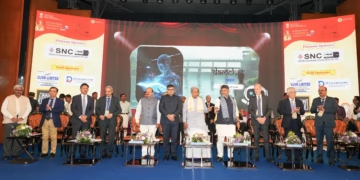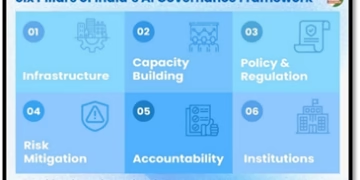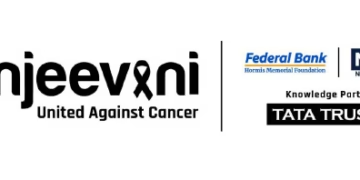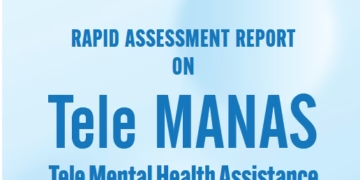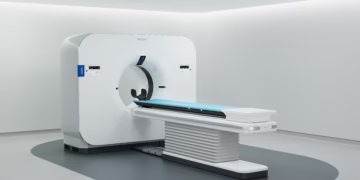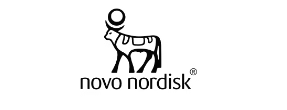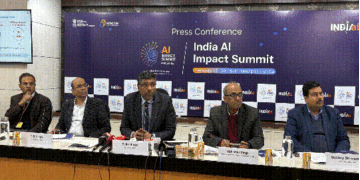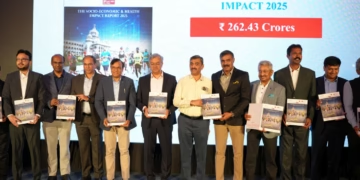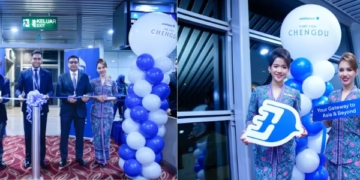- Pivotal phase III SUNMO study demonstrated an 11.5 month median progression-free survival – three times longer than R-GemOx1
- This well-tolerated investigational combination therapy avoids traditional chemotherapy and may be suitable for outpatient community care
- These data demonstrate Roche’s commitment to providing options for diverse patient and healthcare system needs in this difficult-to-treat lymphoma
Basel, 20 June 2025 – Roche (SIX: RO, ROG; OTCQX: RHHBY) presented today results from the phase III SUNMO [NCT05171647] study showing Lunsumio® (mosunetuzumab) administered subcutaneously in combination with Polivy® (polatuzumab vedotin) demonstrated a clinically meaningful and statistically significant improvement in its primary endpoints of progression-free survival (PFS) and objective response rate (ORR) compared to MabThera®/Rituxan® (rituximab), gemcitabine and oxaliplatin (R-GemOx), in people with relapsed or refractory (R/R) large B-cell lymphoma (LBCL) who are not eligible for transplant.1 Primary analysis data were featured at the 18th International Conference on Malignant Lymphoma as a late-breaking oral presentation.
Results from the SUNMO study will be submitted to global health authorities, including the US Food and Drug Administration. The National Comprehensive Cancer Network® (NCCN®) has recently added Lunsumio and Polivy to the NCCN Clinical Practice Guidelines in Oncology (NCCN Guidelines®) as a category 2A recommendation for the treatment of people with second-line (2L) diffuse large B-cell lymphoma (DLBCL) who are not intended to proceed to transplant.†2
“Lunsumio and Polivy represent the first combination of a bispecific antibody and antibody-drug conjugate, which could avoid chemotherapy and potentially provide an alternative option for some patients with relapsed or refractory LBCL,” said Levi Garraway, MD, PhD, Roche’s Chief Medical Officer and Head of Global Product Development. “We are also encouraged by the favourable safety profile and potential for outpatient use of this regimen, which may suit diverse patient and healthcare system needs.”
At a median follow-up of 23.2 months, the Lunsumio and Polivy combination demonstrated a 59% reduction in risk of disease progression or death compared to R-GemOx (hazard ratio [HR] 0.41, 95% confidence interval [CI]: 0.28–0.61; p<0.0001).1 Median PFS was three times longer with Lunsumio and Polivy at 11.5 months (95% CI: 5.6-17.6), compared to 3.8 months for R-GemOx (95% CI: 2.9-4.1) and 12-month PFS was more than doubled at 48.5% (95% CI: 39.6-57.4) vs.17.8% (95% CI: 5.4-30.3), respectively. This PFS benefit was consistent across subgroups, including in high-risk patients with primary refractory disease (HR 0.46, 95% CI: 0.29–0.72).1 At the interim analysis, overall survival (OS) data were not yet mature. OS numerically favoured the Lunsumio and Polivy combination with a median of 18.7 months (95% CI: 14.1–not evaluable [NE]) compared to 13.6 months for R-GemOx (95% CI: 9.9–NE; HR 0.80; 95% CI: 0.54 – 1.20).1
“There remains a clear need for effective and well-tolerated treatments for people with this difficult-to-treat disease,” said Jason Westin, Professor of Lymphoma and Director of Lymphoma Clinical Research, The University of Texas, MD Anderson Cancer Center. “If approved, this off-the-shelf treatment combination of mosunetuzumab and polatuzumab vedotin could be administered over a fixed period of time, without mandatory hospitalisation or traditional chemotherapy, which could provide a meaningful option for patients with relapsed or refractory LBCL.”
In the Lunsumio and Polivy arm, 30% more patients achieved an objective response (70.3%, 95% CI: 61.9-77.8) compared to R-GemOx (40.0%; 95% CI: 28.5-52.4), and the complete response rate was doubled at 51.4% (95% CI: 42.8-60.0) vs. 24.3% (95% CI: 14.8-36.0).1 Nearly 75% of patients with a complete response were still in remission after one year (72.6%; 95% CI: 61.4-83.8) compared to 44.1% for R-GemOx (95% CI: 13.2-74.9).1
The safety profile of the Lunsumio and Polivy combination was consistent with the known profiles of the individual study medicines, potentially allowing use across outpatient and community settings.1 The incidence of cytokine release syndrome events (CRS) in the Lunsumio plus Polivy arm was low, occurring in one in four patients, with less than 5% of patients experiencing Grade (Gr) 2 or 3 CRS events.1 No immune effector cell-associated neurotoxicity syndrome events were reported. Rates of Gr3–4 (58.5% vs. 57.8%) and Gr5 (5.2% vs. 6.3%) adverse events (AEs) were similar between the combination and R-GemOx, with fewer AEs leading to treatment discontinuation in the Lunsumio and Polivy arm (2.2% vs. 4.7%).1
High-dose chemotherapy followed by stem-cell transplant has traditionally been the standard 2L treatment for people with R/R LBCL.3 While 2L therapies have advanced, DLBCL can progress rapidly and many people are not candidates for, cannot tolerate, or do not have access to latest therapies.2,4 There is an urgent need for treatments that are rapidly available upon a diagnosis of relapse, that can manage the disease and improve long-term outcomes.
Roche’s lymphoma portfolio is one of the broadest in the industry, providing a unique and much-needed opportunity to combine regimens with different and complementary mechanisms of action. We are exploring our CD20xCD3 bispecifics, Lunsumio and Columvi® (glofitamab), alongside Polivy to move one step closer towards our goal of improving the lives of as many patients with lymphomas as possible. This includes the phase III STARGLO study [NCT04408638] evaluating the efficacy and safety of Columvi in combination with GemOx versus R-GemOx alone in patients with R/R DLBCL who have received at least one prior line of therapy and who are not candidates for autologous stem cell transplant, or who have received two or more prior lines of therapy.
Lunsumio is already approved for people with R/R follicular lymphoma after two or more lines of therapy in more than 60 countries worldwide. Polivy in combination with MabThera/Rituxan, cyclophosphamide, doxorubicin and prednisone is approved for people with previously untreated DLBCL in more than 100 countries worldwide and in combination with bendamustine and MabThera/Rituxan for R/R DLBCL in more than 90 countries worldwide.










